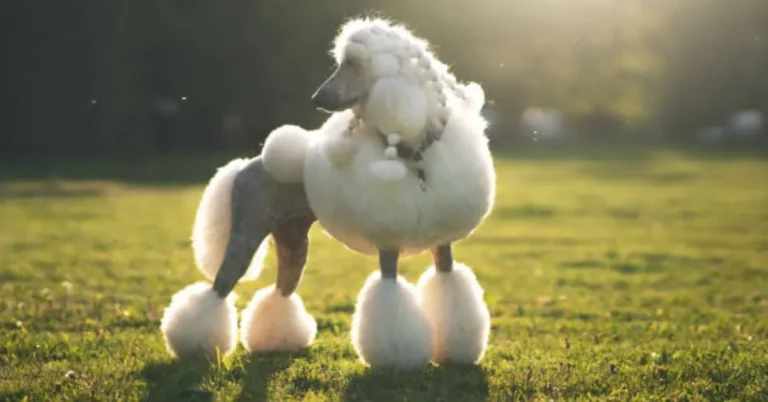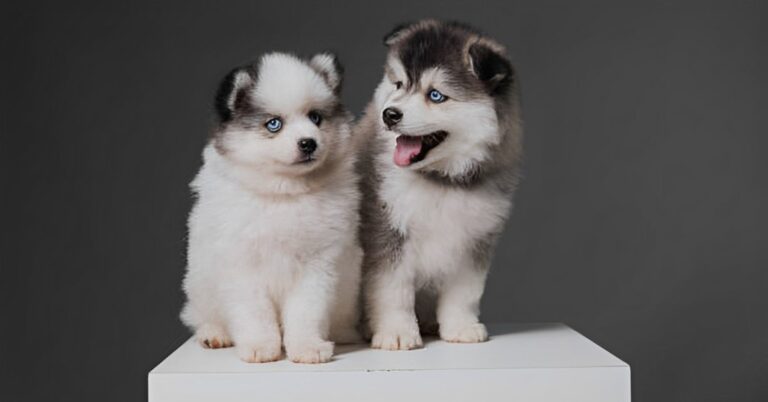Schnoodle Puppies: Traits, Properties, Caring, Food Requirements
Schnoodle puppies are the epitome of canine charisma, blending the spirited nature of Schnauzers with the intelligence of Poodles to create a truly remarkable crossbreed.
With their hypoallergenic coats and affectionate personalities, Schnoodles have captured the hearts of dog lovers around the world.
These delightful furballs bring a perfect balance of playfulness and loyalty, making them not just pets but cherished members of the family.
Certainly! Here’s a table outlining key characteristics of Schnoodle puppies, including both males (dogs) and females (bitches):
| Characteristic | Dogs | Bitches |
| Height | 12 – 20 inches | 10 – 18 inches |
| Weight | 10 – 20 pounds | 8 – 18 pounds |
| Coat | Wavy or Curly | Wavy or Curly |
| Colors | Various Colors | Various Colors |
| Lifespan | 12 – 16 years | 12 – 16 years |
| Suitable For | Families, Singles | Families, Singles |

Physical Traits of Schnoodle Puppies
Here’s are some physical traits of Schnoodle Puppies:
Adorable Appearance of Schnoodle puppies
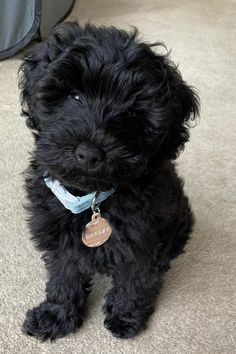
Schnoodle puppies boast an irresistibly charming appearance that combines the distinctive features of both Schnauzers and Poodles.
With expressive eyes, a button nose, and a curly or wavy coat, these little ones exude an undeniable cuteness that captures the hearts of dog enthusiasts.
Coat Varieties
One of the standout physical traits of Schnoodle puppies is their coat diversity. Depending on the specific crossbreeding, Schnoodles can have a curly, wavy, or straight coat.
This variety not only contributes to their unique charm but also offers options for individuals with specific grooming preferences or allergies.
Hypoallergenic Marvels
Schnoodle puppies inherit the hypoallergenic qualities from their Poodle lineage, making them an excellent choice for individuals with sensitivities.
Their low-shedding coats minimize allergens, providing a delightful solution for those seeking a furry companion without compromising on health and cleanliness.
Compact Stature
While Schnoodle puppies may vary in size, they generally exhibit a compact and sturdy build. This makes them well-suited for apartment living or homes with limited space.
Their manageable size, combined with a playful demeanor, ensures they adapt well to various living environments.

Expressive Ears and Tail
Schnoodles often display distinctive, expressive features such as floppy ears and a well-carried tail. These traits contribute to their animated expressions, allowing them to communicate their emotions effectively.
Their tails, whether natural or docked, add a touch of elegance to their overall appearance.
Intelligent Gaze
Reflecting the intelligence inherited from both parent breeds, Schnoodle puppies possess an alert and perceptive gaze.
Their keen eyes not only reveal a sharp intellect but also make them quick learners, facilitating training sessions and fostering a strong bond with their human companions.
Pawfect Paws
Schnoodle puppies typically have well-proportioned and dainty paws, adding to their overall endearing look.
These tiny yet sturdy feet contribute to their agility, allowing them to engage in various activities with enthusiasm, whether it’s playtime or a brisk walk in the park.
Schnoodle puppies embody a delightful combination of adorable traits, making them an ideal choice for families and individuals seeking a loving, intelligent, and visually captivating canine companion.
properties of pups with Schnoodles
Here’s are some properties of schnoodles puppies:
Intelligent Companions:
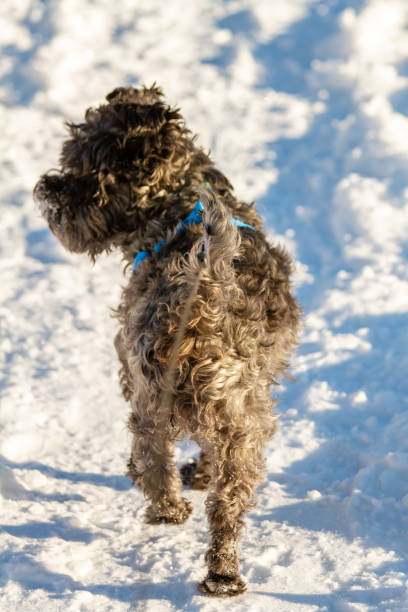
Schnoodle puppies inherit a high level of intelligence from their Poodle and Schnauzer parentage.
Known for their quick wit and ability to grasp commands swiftly, these puppies make for trainable and responsive companions, excelling in obedience and agility tasks.
Playful and Energetic
A vibrant zest for life characterizes Schnoodle puppies. Their playful demeanor and abundant energy levels make them fantastic playmates for families, providing endless entertainment and ensuring they actively participate in both indoor and outdoor activities.
Affectionate and Loyal
Schnoodles are renowned for their affectionate nature and unwavering loyalty. These puppies form strong bonds with their human family members, seeking constant companionship and showering them with love. Their devotion makes them excellent emotional support animals.
Adaptable to Living Environments
Whether in a spacious home or a cozy apartment, Schnoodle puppies showcase remarkable adaptability.
Their moderate size and low-shedding coat make them suitable for various living conditions, ensuring they thrive in urban or suburban settings.
Social Butterflies
Schnoodle puppies are naturally sociable and enjoy interacting with both humans and other pets.
Their friendly disposition makes them ideal for households with children and other animals, fostering a harmonious environment where they can thrive as part of a social pack.
Low Allergenicity
Derived from their Poodle lineage, Schnoodle puppies often possess hypoallergenic coats. This characteristic is a boon for individuals with allergies, as the reduced shedding minimizes the presence of allergens, allowing for a healthier and more comfortable living environment.
Versatile Exercise Partners
While they may be small in size, Schnoodles are robust and enjoy physical activities. They adapt well to various exercise routines, from playful romps in the backyard to brisk walks around the neighborhood.
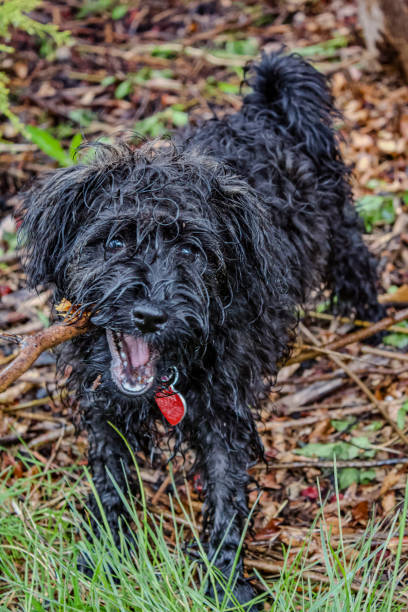
This versatility ensures that they meet their exercise needs and maintain overall well-being.
Alert Watchdogs
In addition, the Schnoodle’s keen sense of awareness, inherited from both parent breeds, makes them excellent watchdogs.
They have a natural instinct to alert their owners to any unusual activity, adding an extra layer of security to the household.
Adaptable Grooming Needs
The grooming requirements of Schnoodle puppies vary based on their coat type. Whether sporting a curly, wavy, or straight coat, routine brushing and occasional grooming sessions suffice to keep them looking their best.
This adaptability makes them an excellent choice for owners with varying preferences in grooming commitment.
Schnoodle puppies encompass a harmonious blend of intelligence, playfulness, loyalty, and adaptability, making them not just delightful pets but cherished members of the family.
Caring for schnoodles puppies
Here are essential tips to ensure schnoodles puppies well-being:
Nutritious Diet
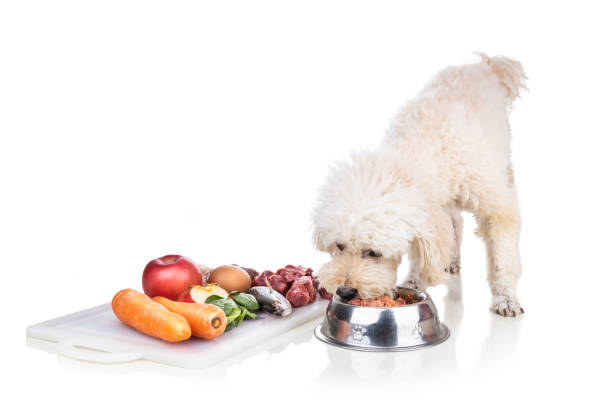
In addition, ensuring a well-balanced and age-appropriate diet is crucial for the health of Schnoodle puppies. Consult with your veterinarian to determine the best food options, considering their size, age, and specific nutritional needs.
Regular feeding schedules and portion control help maintain a healthy weight.
Regular Veterinary Check-ups
Schedule routine vet visits to monitor the overall health and development of your Schnoodle puppy.
Keep vaccinations up-to-date, discuss preventive care measures, and address any concerns or questions you may have about their well-being.
Grooming Routine
Schnoodle puppies have various coat types, so their grooming needs may differ. Brush their coat regularly to prevent matting and tangling, and consider professional grooming sessions to maintain a clean and healthy coat.
Pay attention to dental hygiene by brushing their teeth and providing appropriate chew toys.
Positive Reinforcement Training
In addition, Leverage the intelligence of Schnoodle puppies through positive reinforcement training. Generally, use treats, praise, and play to reward good behavior, fostering a strong bond and ensuring they understand commands.
Consistency is key in establishing a well-behaved and responsive companion.
Regular Exercise
Despite their smaller size, Schnoodles are energetic dogs that require regular exercise. Engage them in daily walks, play sessions, and mentally stimulating activities.
This not only keeps them physically fit but also provides an outlet for their playful nature.
Socialization Opportunities
In addition, expose Schnoodle puppies to various people, environments, and other animals early on to promote positive socialization.
This helps prevent behavioral issues and ensures they grow up to be well-adjusted, confident, and friendly companions.
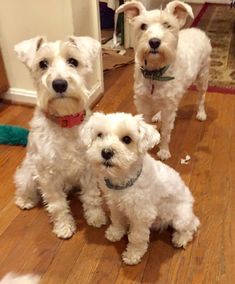
Create a Safe Environment
Puppy-proof your living space by removing potential hazards and providing a safe, designated area for them to play.
Ensure all necessary supplies such as food and water bowls, a comfortable bed, and chew toys are readily available.
Regular Mental Stimulation
In addition, stimulate their minds with interactive toys, puzzle games, and training sessions. Schnoodle puppies, being intelligent, benefit greatly from mental challenges that keep them engaged and prevent boredom.
Hygiene Practices
Generally, maintain good hygiene by cleaning their ears regularly, trimming their nails, and checking for any signs of discomfort or health issues. A clean and healthy pup is a happy one.
Love and Affection
Above all, shower your Schnoodle puppy with love and affection. These dogs thrive on companionship and form strong bonds with their human family.
Spend quality time with them, provide positive interactions, and create a nurturing environment for a happy and well-adjusted companion.
By incorporating these care practices into your routine, you can ensure that your Schnoodle puppy not only stays physically healthy but also develops into a well-behaved, social, and cherished member of your family.
Health issues of schnoodle puppies
While Schnoodle puppies are generally healthy and robust, like all breeds, they may be prone to certain health issues.
Responsible breeding practices can mitigate some of these concerns, but it’s essential for potential owners to be aware of potential health issues.
Here are some common health considerations for Schnoodle puppies:
Genetic Conditions
Schnoodles, being a hybrid breed, may inherit certain genetic conditions from their parent breeds, such as Schnauzers and Poodles.
These can include hip dysplasia, progressive retinal atrophy (PRA), and various heart conditions. Reputable breeders conduct health screenings on the parent dogs to reduce the risk of passing on genetic disorders.
Dental Health
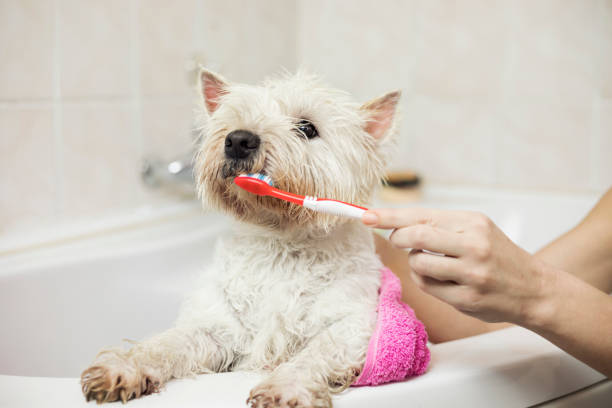
Small breeds, including Schnoodles, can be prone to dental issues. Establish a regular dental care routine, including brushing their teeth and providing dental chews, to prevent periodontal problems.
Eye Conditions
Schnoodle puppies may be susceptible to eye issues, including cataracts and retinal disorders. Regular veterinary check-ups, especially eye examinations, can help detect and address any potential problems early on.
Skin Allergies
Some Schnoodles may develop skin allergies or sensitivities. Take note of their skin and coat conditions.
If there are signs of itching, redness, or irritation, consult with a veterinarian to identify potential allergens and determine an appropriate course of action.
Ear Infections
With their floppy ears, Schnoodles are prone to ear infections. Regular cleaning and inspection can help prevent issues, but if you notice signs of discomfort, such as scratching or shaking of the head, consult with your vet promptly.
Patellar Luxation of Schnoodle puppies
In addition, this condition involves the dislocation of the kneecap and can be more common in smaller breeds. Regular exercise, a healthy diet, and maintaining a healthy weight can help reduce the risk of patellar luxation.
Obesity
Certainly, schnoodles, like many small breeds, can be prone to obesity if their diet and exercise aren’t properly managed.
Be mindful of portion control, provide a balanced diet, and engage in regular exercise to maintain a healthy weight.
Gastrointestinal Issues
In addition, some Schnoodles may have sensitivities to certain foods or be prone to gastrointestinal issues. Pay attention to their digestion, and consult with your vet if you notice persistent digestive problems.
Respiratory Issues
Toy and miniature breeds, including Schnoodles, may be susceptible to respiratory issues. Avoid exposing them to extreme temperatures, and be cautious with activities that could strain their respiratory system.
Regular Veterinary Check-ups
Regardless of breed, regular veterinary check-ups are crucial for monitoring your Schnoodle’s overall health. Early detection of any health issues can significantly improve the chances of successful treatment.
As with any dog breed, choosing a reputable breeder who conducts thorough health screenings on the parent dogs is crucial.
Additionally, providing a nutritious diet, regular exercise, and attentive veterinary care are key components of maintaining the health and well-being of Schnoodle puppies.
Always consult with a veterinarian for personalized advice and guidance based on your individual pup’s needs.
Food Requirements for schnoodle puppies
Generally, providing the right nutrition is essential for the health and development of Schnoodle puppies. Here are some guidelines for their food requirements:
High-Quality Puppy Food foe Schnoodle puppies
Start with a premium quality, age-appropriate puppy food. Look for options specifically formulated for small or toy breeds, considering the size of Schnoodle puppies.
These foods are designed to meet the energy and nutrient needs of growing pups.
Protein Content
Opt for puppy foods with a higher protein content. Protein is crucial for muscle development and overall growth. Aim for a food that contains around 25-30% protein.
Moderate Fat Levels
Schnoodle puppies need a moderate amount of healthy fats for energy. Look for foods with around 10-15% fat content. Essential fatty acids, such as omega-3 and omega-6, contribute to healthy skin and coat.
Balanced Nutrition
Ensure the puppy food provides a balanced mix of essential nutrients, including vitamins and minerals. This is crucial for bone development, immune system support, and overall well-being.
Avoid Fillers and Artificial Additives
Choose a puppy food that avoids unnecessary fillers, artificial preservatives, and additives. Look for whole food ingredients and natural preservatives to support your Schnoodle puppy’s overall health.
Feeding Schedule
Establish a consistent feeding schedule with two to three meals per day for Schnoodle puppies. This helps regulate their metabolism and provides a steady source of energy throughout the day.
Portion Control
In addition, pay attention to portion proportions to avoid overindulging and to keep your weight in check. Adapt the serving sizes to your puppy’s age, weight, and level of activity.
Consult with your veterinarian to determine the appropriate amount for your specific Schnoodle.
Hydration
Always ensure your Schnoodle puppy has access to fresh, clean water. Hydration is crucial for overall health, digestion, and energy levels.
Transitioning to Adult Food
Monitor your puppy’s growth and consult with your veterinarian about transitioning to adult dog food. This typically occurs around 12 months of age but may vary depending on individual development.
Consult with a Veterinarian
Every Schnoodle is unique, and individual dietary needs may vary. Regularly consult with your veterinarian to assess your puppy’s overall health and nutritional requirements.
They can provide guidance on any specific dietary considerations based on your Schnoodle’s health and lifestyle.
Remember, the key to a healthy and happy Schnoodle is a well-balanced diet tailored to their specific needs.
Obviously, regular veterinary check-ups and open communication with your vet will help ensure that your Schnoodle puppy receives the best possible nutrition for a thriving start in life.
See also: Adult pomsky
Frequently Asked Questions
Schnoodles are great watchdogs and have a tendency to bark sometimes. This breed is clever but stubborn; they pick things very quickly but frequently refuse to repeat commands, so constant training is essential.
plus a ton of endurance! They are excellent pets for kids and will become kind and gentle playmates.
A miniature (little) schnoodle typically lives between 10 and 18 years. The Giant (big) variety lasts around 10-15 years, while the Standard (medium) version lasts roughly 10–16 years.
However, this might change based on the dog’s overall health and activity, as well as the sizes of the parents.
They are really loving.
A Schnoodle that is well-socialized from puppyhood forward will have no problem making friends with anyone. All they want to do is lick each other’s faces, give each other passionate embraces, and take up as much space as they can on the bed.
Over the past 15 years, the Teddy Bear Schnoodle has gained popularity as a hybrid dog breed.
Generally, he comes in many hues and is a hybrid between a Poodle and a Schnauzer.
The Schnoodle, weighing between 6 and 76 pounds, can be used as a performance dog, lap dog, family dog, or therapy dog.
Conclusion
In conclusion, Schnoodle puppies embody a delightful blend of charm, intelligence, and adaptability, making them ideal companions for families and individuals alike.
Their hypoallergenic coats, affectionate nature, and versatility in various living environments contribute to their status as cherished family members.
In the final analysis, by providing proper care, nutrition, and regular veterinary attention, you can ensure that your Schnoodle puppy thrives, bringing joy and laughter into your home.



